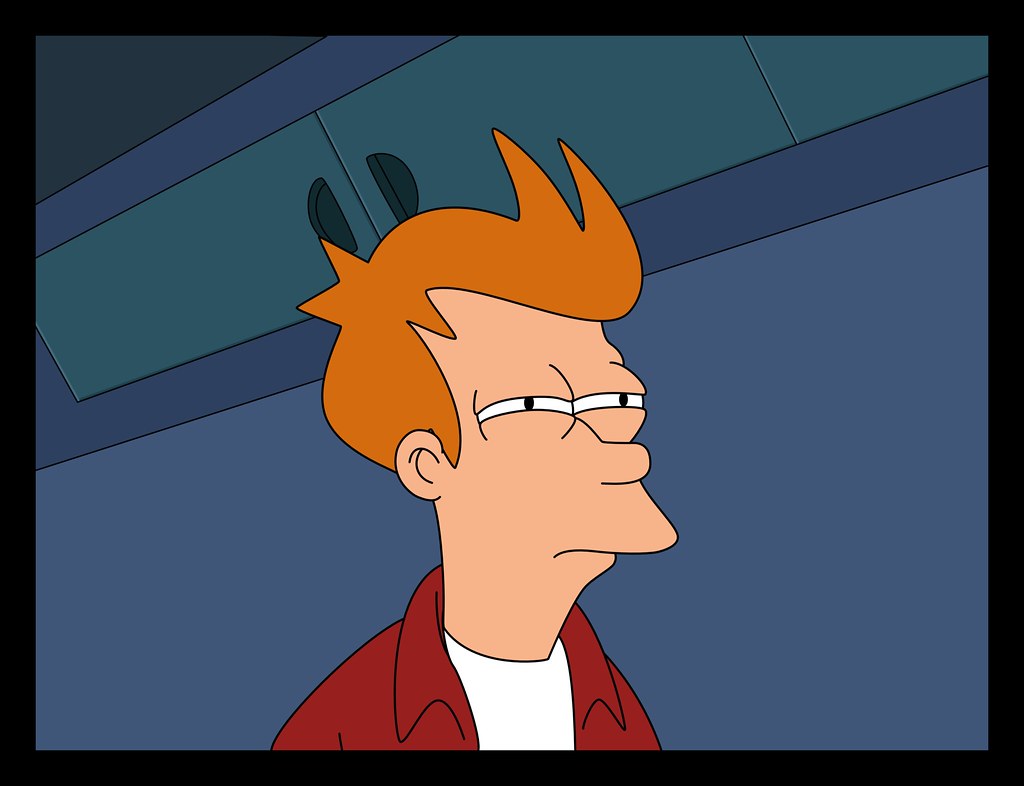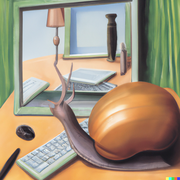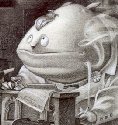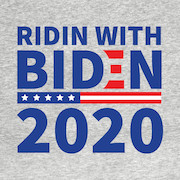|
In other news the political takeover of Hong Kong is more or less complete.quote:China has passed sweeping changes to Hong Kong's electoral rules which will tighten its control over the city. The number of directly elected seats in parliament has been cut almost by half, and prospective MPs will first be vetted by a pro-Beijing committee to ensure their loyalty to the mainland. The aim is to ensure only "patriotic" figures can run for positions of power.
|
|
|
|

|
| # ? Jun 8, 2024 10:01 |
|
freeasinbeer posted:The other big claim was that it had been around since September or October and that it had spread to almost every Chinese province by November. It being present in October is known, however they think less than 20 people had it. Most epidemics don't really take off. It just took off in the Wuhan Market.
|
|
|
|
It's really a shame/tragedy.
|
|
|
|
socialism with chinese characteristics is that corporations can vote, but people can't
|
|
|
|
My dad's perfectly happy with this since, 'The British introduced democracy as a poison pill to China. If they had actually wanted Hong Kong democracy they would have introduced it ages ago and they didn't even have it in Northern Ireland until the 80s.' Pointing out that there are documented cases of China threatening to invade if the UK really followed through with democratic reforms is met with 'well if that was the real reason they wouldn't have done it when they did either'. I won't follow through with how the rest of the argument goes every single time but I've always found 'democracy as a poison pill' idea pretty wild.
|
|
|
|
That was actually news to me and on confirming it on wikipedia I wonder what the rationale was in the 1950's and 60's to oppose democratic reforms in Hong Kong. My understanding is coloured mainly by reading the Taipan novels but wouldn't have a more democratic HK government in the 50's to 70's have been more interesting in wanted to be unified with China? Or was the fear that it would've been a fig leaf/smokescreen/conspiracy to have Hong Kong be made an independent country and avoid having to hand it over when the lease expired? Or is it one of those things as long as the colonial government continued Beijing could point to the colonial status of HK to wag their fingers at Britain?
|
|
|
|
Jeoh posted:socialism with chinese characteristics is that corporations can vote, but people can't
|
|
|
|
Raenir Salazar posted:That was actually news to me and on confirming it on wikipedia I wonder what the rationale was in the 1950's and 60's to oppose democratic reforms in Hong Kong. My understanding is coloured mainly by reading the Taipan novels but wouldn't have a more democratic HK government in the 50's to 70's have been more interesting in wanted to be unified with China? Or was the fear that it would've been a fig leaf/smokescreen/conspiracy to have Hong Kong be made an independent country and avoid having to hand it over when the lease expired? Or is it one of those things as long as the colonial government continued Beijing could point to the colonial status of HK to wag their fingers at Britain? I think it was a combination of Mao and other CCP leaders being opposed to democracy period and thinking that it would be ultimately much harder justifying overhauling a democratic system in Hong Kong than a top down colonialist one. They probably also much preferred the possibility of inciting a popular revolt against colonial rule that they could come in off the back of, they certainly spent a reasonable amount of effort trying to get just that to happen. So yeah, I think China was aware that they could conquer Hong Kong at any point but it would be a bad look globally and cut off a useful route to the outside world for them. Democratic reforms presented a threat to create a stable, Chinese government in Hong Kong that they would not be easily able to get rid of. I am also aware modern CCP ideology holds that democracy isn't compatible with Chinese culture and so isn't a practicable system of government for Chinese people (Taiwan is a democratic system but is also a rogue province that is defying the mandate of Heaven, which just goes to prove that democracy is inherently unstable and anti-China). I have no idea if this attitude was existent way back in the formation of the CCP as a ruling party but if it was opposing democratic reforms in Hong Kong would make perfect sense because it would be a pretty undeniable example that democracy could work in a Chinese context. I also left out the retort I would get if I pointed out that regardless of the origin of democracy in Hong Kong there are people out there fighting for it and what's wrong with democracy? Which is of course that it's not really democracy, it's an astroturfed movement by Hong Kong oligarchs who want to rule Hong Kong and escape Beijing, so not vetting candidates for their patriotism is going to in fact mean that Hong Kongers won't be able to rule themselves. Jesus typing this stuff out and I'm realising my dad is pretty much a tankie (except he doesn't like communism, he straight up thinks the CCP's crony capitalism is the way to do stuff because 'it's more efficient').
|
|
|
|
Grouchio posted:It's like the old Imperial Chinese hierarchy if you replace officials with corps and the Emperor with the Politburo/Chairman. A good portion of this authoritarianism is decisively neo-confucian. This seems like orientalist silliness to me. Though it does seem that the functional constituency system developed out of provisions in the 1947 ROC constitution, so I guess it's not completely a communist or British invention. Silver2195 fucked around with this message at 22:06 on Mar 30, 2021 |
|
|
|
MrNemo posted:I think it was a combination of Mao and other CCP leaders being opposed to democracy period and thinking that it would be ultimately much harder justifying overhauling a democratic system in Hong Kong than a top down colonialist one. They probably also much preferred the possibility of inciting a popular revolt against colonial rule that they could come in off the back of, they certainly spent a reasonable amount of effort trying to get just that to happen. So yeah, I think China was aware that they could conquer Hong Kong at any point but it would be a bad look globally and cut off a useful route to the outside world for them. Democratic reforms presented a threat to create a stable, Chinese government in Hong Kong that they would not be easily able to get rid of. Well specifically iirc the opposition is probably towards bourgosie democracy as the USSR/PRC/DPRK/Vietnam/etc all claim to be democratic socialist systems.
|
|
|
|
Grouchio posted:It's like the old Imperial Chinese hierarchy if you replace officials with corps and the Emperor with the Politburo/Chairman. A good portion of this authoritarianism is decisively neo-confucian. Interesting. Which neo-confucian philosophers' works do you think are particularly influential here?
|
|
|
|
Yeah.... While the PRC funds the Confucius institute and stuff, that's more like their version of Voice of America and something to build connections and improve their influence over the diaspora, I don't think the PRC's leadership is particularly influenced by neoconfucianism.
|
|
|
|
The Brits were perfectly happy to run it like a colonial possession, as in by fiat, until it became clear that the actually really were expected to hand it back after talks in the early eighties. The first fully elected LegCo was seated in 1995 and the handover was 1997... I don't support the various crackdowns on political discussion etc by China but people are not totally of base when they say that the UK's professed love of Hong Kong's democratic institutions ring a bit hollow. Also, from what I can see what a lot of people are fighting for is not being locked up for having discussions like the ones we're having on this forum all the bloody time. Imagined being ruled by Trump and then being locked up when you rip the poo poo out of him.
|
|
|
|
Raenir Salazar posted:Yeah.... While the PRC funds the Confucius institute and stuff, that's more like their version of Voice of America and something to build connections and improve their influence over the diaspora, I don't think the PRC's leadership is particularly influenced by neoconfucianism. It's widely rumored Xi is a big Han Fei Zi fan. Having read the text a few times (am working on a translation) I can 100% see it.
|
|
|
|
MrNemo posted:My dad's perfectly happy with this since, 'The British introduced democracy as a poison pill to China. If they had actually wanted Hong Kong democracy they would have introduced it ages ago and they didn't even have it in Northern Ireland until the 80s.' Pointing out that there are documented cases of China threatening to invade if the UK really followed through with democratic reforms is met with 'well if that was the real reason they wouldn't have done it when they did either'. I won't follow through with how the rest of the argument goes every single time but I've always found 'democracy as a poison pill' idea pretty wild. Your dad sounds cool, buy him an account
|
|
|
|
Daduzi posted:It's widely rumored Xi is a big Han Fei Zi fan. Having read the text a few times (am working on a translation) I can 100% see it. Right, that makes sense. Afterall Mao and most of the leadership grew up with stories like Water Margin and so on. But there's a difference between having an education (such that you as a member of the political class are expected to have some working knowledge of the classics) and having your education system be designed around those principles and instill those values into the next generation of the political class.
|
|
|
|
Daduzi posted:It's widely rumored Xi is a big Han Fei Zi fan. Having read the text a few times (am working on a translation) I can 100% see it. What bits are most reflected in what he writes himself?
|
|
|
|
My opinion is that democracy is good and it really sucks to be under the dominion of an aristocracy of unaccountable autocrats who reserve the right to mass murder their own citizens when they feel it's necessary.
|
|
|
|
There's also the somewhat unsatisfying economic explanation for the current heavy hand. In 1997, Hong Kong was like 18%-19% of China's GDP, now it's like sub-2%. Bringing HK in line with mainland standards of repression would have previously been shooting the golden goose, now there's less reason for kid gloves. The regime can now stand on principle (such as it is).
|
|
|
|
MrNemo posted:I think it was a combination of Mao and other CCP leaders being opposed to democracy period and thinking that it would be ultimately much harder justifying overhauling a democratic system in Hong Kong than a top down colonialist one. They probably also much preferred the possibility of inciting a popular revolt against colonial rule that they could come in off the back of, they certainly spent a reasonable amount of effort trying to get just that to happen. So yeah, I think China was aware that they could conquer Hong Kong at any point but it would be a bad look globally and cut off a useful route to the outside world for them. Democratic reforms presented a threat to create a stable, Chinese government in Hong Kong that they would not be easily able to get rid of. what is the source of the “democracy isn’t compatible with chinese culture” claim ive seen people repeat. also, where have you seen anyone talking about the mandate of heaven?
|
|
|
|
Mandate of heaven was entirely me being hyperbolic about the neoconfucian element of the current CCP ruling approach and my perception of the importance they place on perceived success of China as a source of legitimacy i.e. Importance placed on continued economic growth, ability to project power in neighbouring areas, etc. I'll accept there's an Orientalist element to the hyperbole, but the insistence on Chinese character, the importance of having culturally appropriate governing structures, etc. That the CCP themselves discuss (in the context of rejecting criticism of their actions typically but also rejecting efforts to encourage democracy in other Asian or African countries) makes me feel less bad about that. The rejection of democracy is something I take from their rejection of 'Western forms of government' in their insistence that Chinese people require a Chinese form of government. Frankly I read arguments like that as bad faith excuses to reject dilution of their own power much as anyone arguing that X people just need to be ruled by a strong man. I would have a lot of sympathy if it only came up regarding reforming intellectual property laws or opening up Chinese markets to 'fair' competition from international companies but it seems to be employed at least as much when it comes to human rights, etc.
|
|
|
|
MrNemo posted:Mandate of heaven was entirely me being hyperbolic about the neoconfucian element of the current CCP ruling approach and my perception of the importance they place on perceived success of China as a source of legitimacy i.e. Importance placed on continued economic growth, ability to project power in neighbouring areas, etc. I'll accept there's an Orientalist element to the hyperbole, but the insistence on Chinese character, the importance of having culturally appropriate governing structures, etc. That the CCP themselves discuss (in the context of rejecting criticism of their actions typically but also rejecting efforts to encourage democracy in other Asian or African countries) makes me feel less bad about that. are you familiar with “new democracy”?
|
|
|
|
If you have to type "Yes this is Orientalist, but" that should really make you reconsider stuff
|
|
|
|
I think the CCP is Orientalist in its rhetoric about itself and the people that it governs.
|
|
|
|
i think you don’t know what you’re talking about. like your assertion that mao was against democracy from the start, you can read what he wrote for free, in english. for example: https://www.marxists.org/reference/archive/mao/selected-works/volume-2/mswv2_26.htm i also don’t think it makes sense to say they’re being orientalist against themselves. what do you mean by that?
|
|
|
|
I think it's something like when reagan pretended to be a cowboy but just the reverse
|
|
|
|
Yeah, the CCP has selectively adopted a lot of weird orientalist myths as a way of deflecting criticism, presenting everything about China as older, more monolithic, more community-oriented, more inscrutable, etc. than it really is. That's not a reason to acquiesce in that nonsense; it's an additional reason not to.
|
|
|
|
fart simpson posted:i also don’t think it makes sense to say they’re being orientalist against themselves. what do you mean by that? Lots of Asian countries have had conservatives essentially embrace orientalist narratives as justification for their own conservatism, often ironically in a sort of dyadic relationship with Western liberals who believe the same things. Japan most obviously, but also arguably India, Islamism, Russia and maybe others
|
|
|
|
fart simpson posted:i also don’t think it makes sense to say they’re being orientalist against themselves. what do you mean by that? As a specific example, North Korea's ideological treatises that were used as defining justifications for the structure and total power of the state are expressly 'orientalist against themselves' -- a combination of race essentialisms that paints the Korean race as pure, but fragile in ways which necessitates the condition of total autocracy, and the glorification of what is essentially a monarchy. South Korea flirts with the same notes, sometimes obnoxiously, and it resulted in choice disagreements with my family about everything from whether I should have kids in the US or even drive my own car. China's overall version of this poo poo is different and not so rigorously codified ... but one way or another, it just became a thing. Hardly the worst or weirdest part of han chauvinism and nationalism, but definitely observable.
|
|
|
|
The Chinese government declaring that the peoples of China can't do democracy and need to consume the weird ground up bits of endangered species that Traditional Chinese Medicine proscribes is like the Texan government declaring that the people of Texas don't want any green energy and would gladly take days-long power outages that led to over a hundred deaths in order to keep the Texas power grid independent. Yeeha.
|
|
|
|
can you point me to somewhere where they claim chinese people can’t do democracy? im curious to see that since ive seen people on the forums repeat it for a long time
|
|
|
|
Jackie Chan famously said it. Not sure how things are going for him now after backing the wrong guy. Didn't he get audited or have property taken from him?
|
|
|
|
The "wolf warriors" they're sending to their secondary interests are not the best. https://twitter.com/AlexDukalskis/status/1377304939152703491?s=19
|
|
|
|
current ideology has some parallels to the 1990s 'Asian Values' wave popular across much of Southeast Asia - in the oppositional sense that China practices 'whole-process democracy' 全过程民主 as opposed to 'Western democracy' 西方民主, where there is supposedly some deep ideological difference (that in practice varies by speaker) 全过程民主 is essentially consultative democracy (协商民主) plus rule of law/process; it's different from Maoist New Democracy in its emphasis on deriving legitimacy from mass process rather than centralist revolutionary leadership quote:http://www.xinhuanet.com/politics/leaders/2019-11/03/c_1125186412.htm What '科学决策、民主决策' (scientific and democratic decisionmaking) means is that civil service experts will identify the legitimate factfinding and the public will be permitted to give feedback Aside from the emphasis on process (which Maoism held in contempt), this is not really that different from how previous generations of socialist theory has envisioned democracy after the revolution. At its best, it is not all that different from actually-existing Western liberal democracy imposing consultation requirements on local statutory planning (and all of these are mainly requirements on local government). Chinese theoreticians are quite willing to highlight how 协商民主 parallels the Western development of deliberative democracy in the 1980s (the public consultation turn in the West itself coincides with the neoliberal turn; plenty of ink has been spilled on its hopes and failings, I won't go into it here). At its worst, it is a requirement that all local-democratic input be exclusively practiced in a way where the local government conveniently knows who is objecting and where they live, rather than anything that might involve a secret ballot - and where any participation in the consultation at all must be through organized civil-social representative groups that can then be obliged to endorse whatever decisionmaking outcomes. This is not a system that sits well with openly adversarial societal disputes (which don't have to be culture wars - land use disputes are as common in China as they have been historically in the West) or with a fluid civil society (where groups representing a collective interest undergo rapid appearance and dissolution, as they have in the West since the 1960s and its new social movement politics)
|
|
|
|
China's state ideology doesn't seem that inscrutable to me. Just read their material and watch the hip-hop videos which seems like it gets the message across: https://twitter.com/QiushiJournal/status/1377451651712364544 https://www.youtube.com/watch?v=C59oy6hUd4A ^ I mean that kid is buying it 
|
|
|
|
BrainDance posted:I think it's something like when reagan pretended to be a cowboy but just the reverse not always in reverse 
|
|
|
|
I don't understand what's so complicated about this. The president of China and the general secretary of the Communist Party of China gets up and says "our ideology is Marxism, we're communists, we think capitalism is destined according to the laws of historical materialism to be superseded by socialism, but we've got to game this out for awhile and not get too far ahead of ourselves or we'll blow it." And then there's huge mass performances of people dancing under giant rotating hammers and sickles, people waving red flags around, and then others who are observing this stare dumbly and go... hmm... that can't be right... that must all be bullshit and the true ideology must be located here in a piece of ancient Chinese philosophy that's thousands of years old.  Yeah, that probably has an influence, just like Aristotle or Plato has influenced western political systems, but the answer is right in front of your nose! It's just OBVIOUS. The fact that it looks Chinese instead of Russian and adapted it to some older Chinese political, cultural and historical traditions isn't surprising, anymore than the wet kisses that Soviet leaders gave to each other wasn't "socialist" as much as a tradition from the Eastern Orthodox Church that they just lifted and borrowed so it became the "socialist fraternal kiss." Some of the stuff I read online makes me want to grab the person and force them to watch this: https://www.youtube.com/watch?v=jOIPtWoVyRU Me: "Look! It's communist stuff!" Some dude: "I dunno... where's the vodka?"
|
|
|
|
after mao died they should've put those guangxi cannibals in charge. they'd never let capitalist roaders take root in china... cuz they'd eat them
|
|
|
|
ronya posted:current ideology has some parallels to the 1990s 'Asian Values' wave popular across much of Southeast Asia - in the oppositional sense that China practices 'whole-process democracy' 全过程民主 as opposed to 'Western democracy' 西方民主, where there is supposedly some deep ideological difference (that in practice varies by speaker) cool post, thanks for this
|
|
|
|

|
| # ? Jun 8, 2024 10:01 |
|
you don't have to link it to neo-Confucianism to argue that it's a very pre-Fanon, pre-New-Left left-wing view of the appeal (or lack thereof) of an independent civil society and cultural self-realization it's an intensely communitarian, corporatist political culture that places a massive premium on deferential disagreement. Political action is permissible but must be couched in a form that acknowledges the moral and ideological supremacy of the system. Petitioning (信访) remains the dominant form of non-institutional political change, rather than protest that rejects a legitimate mandate outright (especially under Xi relative to Hu), and responsiveness to petitions and local dissatisfactions is a key metric the center focuses on to discipline regional governments (e.g. the USSR only wished for glasnost but Hu and Xi have made Freedom of Information requests endure as a bureaucratic process). Conversely, non-endorsed protest and pamphlet distribution efforts, even those nominally aligned with goals embraced by ongoing official campaigns, are still ostentatiously repressed (e.g. anti-sexual harassment campaigners). Again, it's not necessarily about what one disagrees with but how that disagreement is pursued. the USSR was never a great fan of an independent civil society but ideologically committed themselves to not repressing open and organized dissidence, at least in principle, with the Helsinki Accords in 1975. Contemporary official theoretical thought, on the other hand, tends to explicitly highlight the shift as a mistake that doomed the USSR into failing to put down liberal reformers with sufficient enthusiasm, and instead reverts to the traditionally Marxist suspicion of a civil society, separated from party and state, as a vehicle for bourgeois or foreign subversion (caveats: I am no China specialist; my focus is on left-wing strains of thought as a topic) ronya fucked around with this message at 15:30 on Apr 1, 2021 |
|
|































